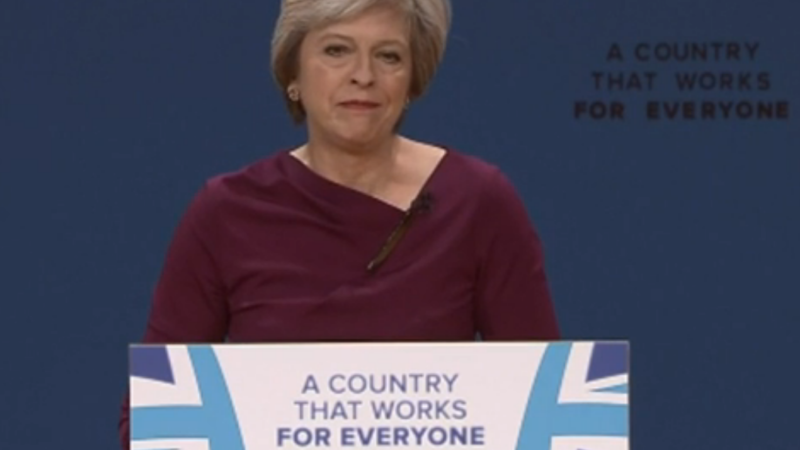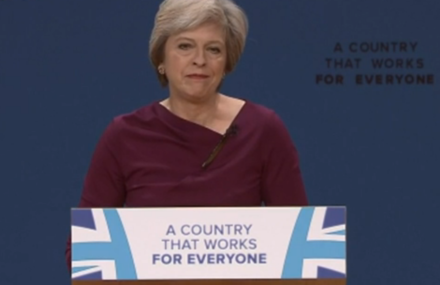

Brexiteers told us throughout the referendum that a future trade deal would definitely be reached with the rest of the EU because ‘they need us more than we need them’. On Sunday morning’s Marr programme, Secretary of State for International Development Priti Patel scolded those calling for parliamentary scrutiny saying that UK negotiators shouldn’t show their hand as they wouldn’t in a game of poker. Current developments inside the EU would act as a cold shower for their bravado if they were paying attention rather than indulging in rhetorical 1850s-style buccaneering bluster.
Yesterday, Prime Minister Theresa May entered her first European Council meeting facing the other 27 national leaders for the first time all in the same place in her new position. The meeting focussed on the beleaguered EU-Canada CETA trade deal, which after seven years of negotiations now hangs in the balance as a result of opposition from a number of smaller member states and a plucky Belgian region of 3 million people, Wallonia. Meanwhile, the massive EU-US Transatlantic Trade and Investment Partnership is on life support with both the US and EU blaming each other for who will turn off the switch. It’s a cautionary tale which the UK government would do well to learn from, otherwise we risk finding ourselves in an equally difficult situation as a future EU-UK deal will probably also face a vote in 35 EU, national and regional parliaments.
EU trade policy is in turmoil largely because of a chronic lack of transparency and democratic participation, which has only too recently been acknowledged. The priority has always been to increase business, even when it means leaving citizens aside. What the TTIP and CETA debates in the European Parliament have shown is that this ‘trade first, democracy second’ approach is already a thing of the past.
And yet, the UK government’s rhetoric and approach aims to repeat the exact mistakes made at EU level, as shown through recent government interventions. Trade policy is not a game of poker in which cards are hidden and we bluff our way arrogantly believing that we have the best hand, and can make the other player pay up. It is a game of bridge in which you need to show your hand and work with others to succeed. We must build the right institutional setting to ensure democratic scrutiny and control of trade agreements. Parliaments, courts and civil society are equipped to do this job. Opaque regulatory bodies or private arbitral tribunals are not and must be opposed vigorously.
But to take another analogy, Theresa May should ensure that if we trigger Article 50 we have our ‘team’ ready with an agreed strategy. Otherwise, just like a lone curling player throwing their stone we will have no control over the direction of travel of the negotiations to leave the EU.
Rather than speak to the gallery, as ministers have been doing by belittling our European counterparts and opposition politicians, they should show some humility and better understand the domestic debates in other countries. We have national allies within the EU, notably in Scandinavia, who are desperate for a good deal with the UK and maintaining strong relations. And there are political alliances too. Labour has a strong European base in the Party of European Socialists with networks across the continent to build on. Jeremy Corbyn has invested more time and energy than previous Labour leaders in attending and participating in PES leaders meetings – a crucial effort to build common understanding and trust. This is in striking contrast to the Tory Party who cut themselves off from mainstream European centre-Right parties by exiting the European Peoples’ Party and the creating the new European right-wing political group ‘European Conservatives and Reformists’ in 2009.
A proper parliamentary debate and process of scrutiny, with full disclosure to the opposition, before Article 50 is triggered will allow the UK ‘team’ to prepare the ground for fruitful negotiations. Moreover, transparency and a respectful attitude towards our counterparts will be crucial to achieve a fair and balanced outcome and avoid us finding ourselves in the same position as CETA negotiators today. Just as a curler relies on the sweepers to direct the stone, as a country we need to ensure that our sweepers are preparing the ice to get us to a good deal at the end: one party can’t do that alone.
Judith Kirton-Darling is a Labour MEP




More from LabourList
‘The cost of living crisis is still Britain’s defining political challenge’
‘Nurses are finally getting the recognition they deserve’
Letters to the Editor – week ending 15th February 2026